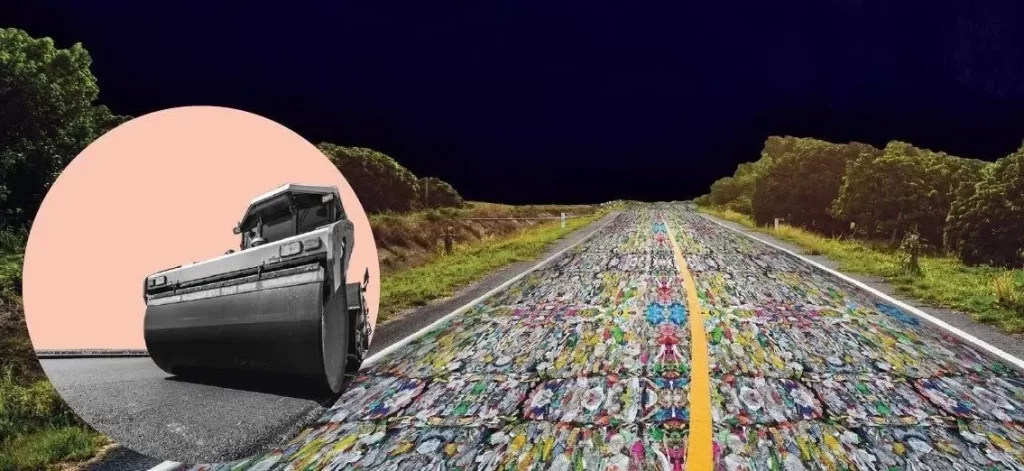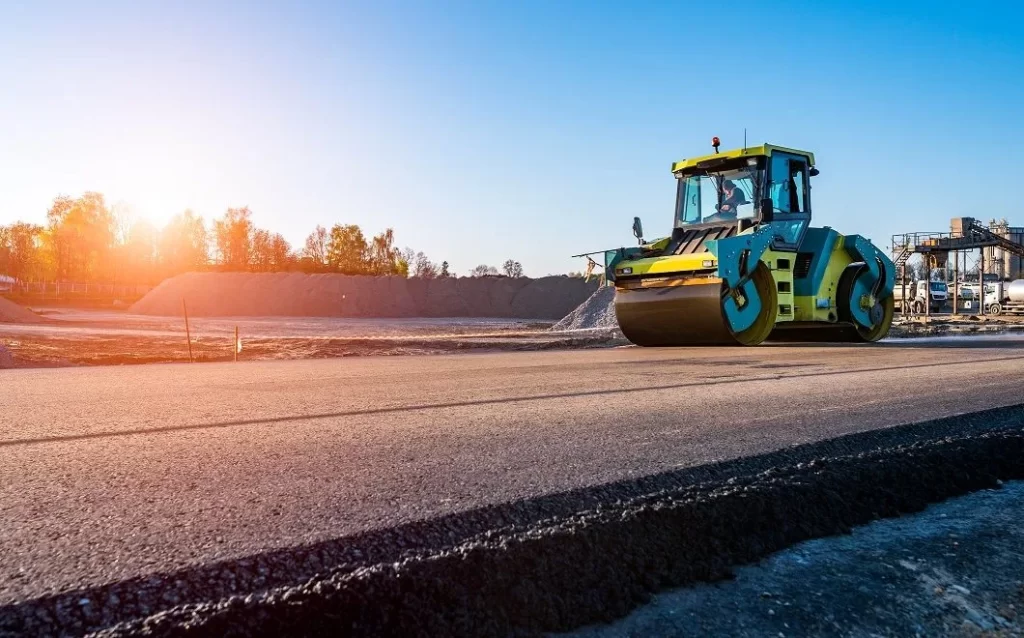In the fight against the ever-growing problem of plastic waste plaguing the planet, innovative remedies are available to cope with the situation. One of these is the construction of plastic roads, which are replacing conventional ways of combating infrastructure decay. All over the world, roads constructed entirely or partially using plastic waste are gaining traction. These roads have the potential to overcome two significant hurdles – reducing plastic waste and increasing road infrastructure longevity.
More significantly, plastic roads will extend lifetime, be more immune to wear and tear, and be more flexible, not to mention being more maintenance-free and resistant to water harm. The concept of using plastic to construct roads is not new, but it is accelerating as the world examines potential alternatives and innovations to make it more sustainable. Given the increased concern about the well-being of the environment, plastic roads have gained greater recognition as a method of repurposing waste instead of simply throwing it away.
As governments and other entities explore greener construction methods and opportunities, plastic roads are playing their little role in the challenge toward a circular economy and a plastic-free world.

The problem of waste and infrastructure decay
The world struggles with two issues- plastic waste and infrastructure decay. The former is already a global emergency, where millions of tons of plastic reach the landfills, oceans, and other natural places every year. The latter is not an environmental disaster yet, but traditional road construction material, asphalt, and concrete have been causing problems in the environment due to their limited lifespan and high maintenance needs. The two circumstances of waste and decaying infrastructure require innovative solutions to be solved by one method.
Advantages of plastic roads
Plastic roads also have multiple benefits over the conventional materials used in road construction. They are a more efficient way of managing plastic waste as they help stop waste from accumulating in the landfills or the ocean. Incorporating waste plastic into the construction of road infrastructure promotes a circular economy by reusing the waste but also limits it from getting into the environment. They also have a longer life in cartilage compared to the traditional roads, which is attributed to the nature of the materials’ strength and durability. The materials are more resistant to friction, reducing the damage to the road surface. Their flexibility helps them resist deformation or crack when exposed to high or low temperatures.
The process of manufacturing plastic roads
Several steps are part of plastic roads’ manufacturing process. It starts with plastic waste collection and sorting, including such types as polyethylene, polypropylene, and polystyrene. After it, the plastic is cleaned, cut to pieces, and mixed with bitumen, a black viscous material with aromas. Then, the melting of the mix occurs, and it is combined with bitumen to create a reliable, flexible mass. Afterward, it can be used as traditional asphalt replacement or involve it as a component in road construction.
Case studies of successful plastic road projects
Many countries have come up with solutions to the plastics menace while tackling infrastructure decay. The world’s first plastic road for cyclists was laid in the Netherlands. The city of Zwolle laid a bike path in 2018 and can stretch up to 30 meters long by 3.5 meters wide. Rijkswaterstaat assistance designed it using scrap supplied by Waste Systems PlasticRoad. The Indian city of Chennai has used over 3,000 tonnes of plastic waste to construct over one thousand kilometers of road. Plastic roads tackle these challenges with the understanding that reject plastic was a valueless resource.
Challenges and concerns of using plastic in road construction
While plastic roads offer numerous benefits, there are also challenges and concerns associated with their use. One major concern is the potential leaching of harmful chemicals from the plastic materials into the environment. To address this issue, extensive research and testing are required to ensure the safety and environmental sustainability of plastic road construction. Another challenge is the limited availability of plastic waste suitable for road construction. Proper waste management systems and recycling infrastructure are essential to ensure a continuous supply of high-quality plastic materials for road projects.

The environmental impact of plastic roads
Plastic roads have a positive environmental impact, primarily by reducing plastic waste and its harmful effects on ecosystems. By utilizing plastic waste in road construction, these roads help prevent plastic from entering landfills, oceans, and other natural environments. Furthermore, the longer lifespan and reduced maintenance requirements of plastic roads contribute to lower energy consumption and carbon emissions associated with road repairs and resurfacing. The environmental benefits of plastic roads make them a crucial component of sustainable infrastructure development.
Government initiatives and policies supporting plastic road projects
In conclusion, governments across the world are beginning to acknowledge the potential of plastic roads and are taking necessary measures to foster their development. The Indian government, for example, has sought to promote the usage of plastic waste in building of roads through the Plastic Waste Management Rules, which require the use of plastic waste in the construction of specific classes of roads. The Dutch government, similarly, has taken up the mantle in driving plastic road innovation by providing financial aid to research and development projects. Such endeavors are vital in encouraging the broader implementation of plastic roads.
Future prospects and potential for plastic roads
The future looks promising for plastic roads as more countries and organizations recognize their potential and invest in research and development. With ongoing advancements in plastic recycling technology and increased awareness of the environmental benefits, the use of plastic in road construction is likely to become more widespread. Plastic roads have the potential to transform the way we build and maintain our infrastructure, offering a sustainable solution that reduces waste, increases durability, and contributes to a cleaner and greener planet with wdbos.
The role of plastic roads in creating a sustainable future
Plastic roads are an innovative solution to both the problems of plastic waste and the degradation of infrastructure. They ensure a sustainable solution to the environmental problem by utilizing plastic waste while providing a longer life span, higher durability, and fewer maintenance needs.
Thus, plastic roads solve two types of problems at once, and even more due to the opportunities offered by a circular economy . Combined with government support, ongoing research, and developing awareness, plastic roads are preparing the world to be cleaner and greener. It is for the benefit of humanity to take advantage of the opportunities offered by plastic roads and ensure a bright future for future generations.
Also read: The Rich Culture and Heritage of Aboriginal Tribes 2024



